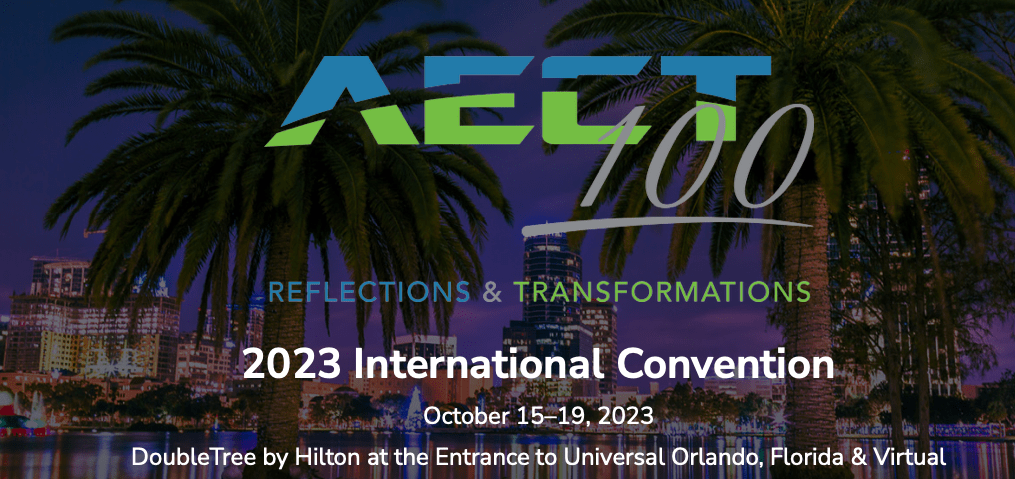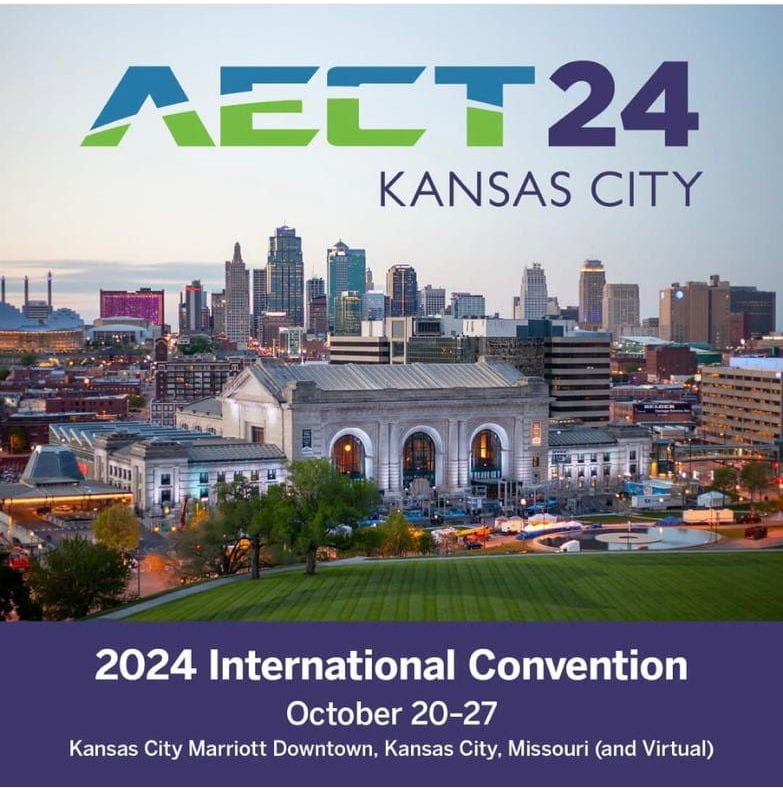By Mimi Adjei and Ana-Paula Correia
The Learning and Experience Design (LED) research group was reunited at the American Educational Research Association (AERA) 2024 annual meeting in Philadelphia, PA (April 11-14, 2024). We had the opportunity to showcase some of the research we have been working on this past year as well as experience and support others’ research.
Poster Sessions:
Dr. Fan Xu and Dr. Ana-Paula Correia contributed to the SIG-Computer and Internet Application in Education program with their poster, Overcoming Obstacles in Computational Thinking Development: Unveiling Challenges and Solutions for Supporting Middle School Pair Programming.
Abstract: In the 21st century, computational thinking (CT) is of utmost importance, and pair programming has emerged as a popular method for teaching CT skills. This study aimed to understand the challenges faced by middle school students in acquiring essential CT elements through pair programming. To gather student insights, an open-ended survey was conducted with eighty-four eighth-grade students in the US. Results revealed numerous challenges in cognitive, affective, and social dimensions during the pair programming process, highlighting the need for increased support at the classroom, school, and district levels to ensure successful implementation of pair programming in middle schools. The study provides theoretical, practical, and methodological implications for CT education and pair programming, acknowledges limitations, and discusses opportunities for future research.

Dr. Fan Xu standing next to her poster presentation
Mimi Adjei and Dr. Ana-Paula Correia presented their study The Role of Learning Analytics in Shaping Meaningful K–12 Learning Experiences: A Systematic Review as a poster during the SIG-Instructional Technology program.
Abstract: Learning analytics (LA) is becoming more prevalent in many educational classrooms. It focuses on analyzing student log data and academic performance to provide valuable insights into their learning processes. This systematic literature review assesses the relationship between learning analytics, learning design, and experiences within K-12 contexts in the past sixteen years (2006-2022). It examines how LA impacts academic achievement, engagement, satisfaction, persistence, and educational outcomes. It also sheds light on students’ learning behaviors and interactions with educational content. Challenges and considerations of its use are also addressed. This review promotes the responsible implementation of LA in K-12 education. The implications also extend to practitioners, researchers, and policymakers, providing insights into integrating learning analytics successfully in education and building educational possibilities.

Mimi Adjei (right) interacting with a visitor at her poster station
Paper Sessions:
Dr. Fan Xu and Dr. Ana-Paula Correia also presented their study, Pair Programming in Middle School: How Individual Factors Impact the Dyad’s Computational Thinking Performances, as a paper session at the SIG—Technology, Instruction, Cognition & Learning’s programming during #AERA24.
Abstract: Computational thinking (CT) is crucial for 21st-century youth, with pair programming commonly utilized for CT education. This study examines the influence of individual factors on students’ CT performance and their partners’ performance in pair programming. An empirical study was conducted with 84 8th-grade students at a Midwest middle school in the US. The results of dyadic analyses reveal a positive correlation between participants’ CT scores and their attitudes toward programming and collaboration. However, no significant relationship was found between scores and prior computer or programming experience. Additionally, students’ attitudes toward collaboration and programming frequency positively predicted their partners’ CT performance. This study offers implications for educational practices and provides suggestions for future research.

Dr. Fan Xu in the midst of her presentation
Jiarui Xie, Mimi Adjei, and Dr. Ana-Paula Correia also presented their paper on their study titled Instructor Participation in Asynchronous Online Discussions: A Comparative Study as part of the SIG-Online Learning SIG program.
Abstract: The way instructors participate in asynchronous online discussions has the potential to affect student engagement. This study aimed to compare the effects of two instructor participation approaches: replying to student posts on discussion boards and commenting on student posts on grade pages. The study examined the impact on both the quantity of student participation and the quality of student posts. The findings revealed that when the instructor replied on discussion boards, there was significantly more interaction between students than when the instructor commented on the grade pages. However, the number of student posts had no significant difference between the two approaches. Notably, both approaches contributed to a gradual improvement in the quality of student posts over time.

Dr. Correia (middle), Jiarui (right), and Mimi Adjei (far right) with other presenters after their presentation
Round Tables:
Sean Hickey also shared his research on Understanding Instructional Design Decisions as part of the AERA Graduate Student Research-in-Progress Roundtable.
Abstract: As technologies emerge and create new job roles requiring new expertise, workplace learning and the role of “instructional designer” have become increasingly important. This qualitative study seeks to better understand the work of high-performing instructional designers and the ways in which they successfully create training materials to meet specific educational or performance objectives. By utilizing an interview format in which designers share work they have done, combining elements of a stimulated recall methodology with a “think-aloud” strategy, the researcher hopes to gain an understanding of how instructional designers interpret theories related to learning, to what extent those theories are consciously applied in the development of learning experiences, and how designers evaluate and engage with emerging technologies (e.g., generative artificial intelligence).
Business meetings:
As the past chair of the SIG Online Teaching and Learning, Dr. Ana-Paula Correia co-led the SIG business meeting on April 14, 2024, with her colleagues, Dr. Mary Rice and Dr. Rebecca Quintana. The purpose of the Online Teaching and Learning SIG is to provide a forum for discussion and reporting on issues and research related to teaching and learning. The business meeting provided opportunities for professional development and networking.
Overall, AERA24 was a fantastic opportunity to reflect on and celebrate our hard work over the past year, as well as to be inspired by the research of others. The event served as a platform to recognize the dedication and efforts of the LED research group and our research projects, highlighting the contributions you are making to the field of educational technology and human-computer interaction. Additionally, AERA24 was a source of inspiration, allowing us to engage with the groundbreaking research conducted by our peers and colleagues. The presentations and discussions sparked new ideas and fostered a sense of community among researchers, further motivating us to continue our pursuit of knowledge and innovation. See you at #AERA25 in Denver, CO!

LED members (past and present) and also some members of Ohio State’s Center on Education and Training for Employment at #AERA24










